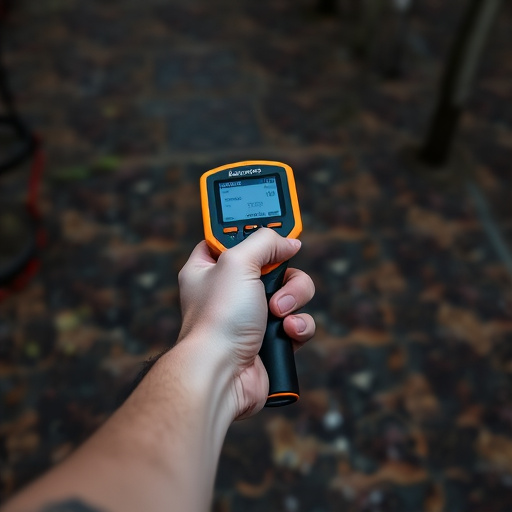Handheld metal detectors are versatile, portable devices using electromagnetic induction technology to detect metallic objects in diverse terrains. Their lightweight design, rechargeable batteries, and real-time feedback make them suitable for hobbyists and professionals in archaeology, law enforcement, and security screening. These devices have proven indispensable in various industries, from construction sites to museums, enhancing safety and mitigating threats with advanced features like multi-frequency technology, digital signal processing, and GPS functionality.
Metal detectors have evolved far beyond their beachcomber origins, with diverse applications and advanced features. This article explores the multifaceted world of these powerful tools, delving into two key areas: handheld metal detectors and specialized applications. From portable powerhouses that scan beaches to innovative technologies enhancing detection accuracy in various industries, understanding the different types of metal detectors opens a world of possibilities. Whether you’re a hobbyist or a professional, there’s a detector suited for your needs.
Handheld Metal Detectors: Portable Powerhouses
Handheld metal detectors are versatile and portable devices, often considered the backbone of treasure hunting and security operations. Their compact design enables easy navigation in various terrains, from sandy beaches to historical ruins. These powerful tools use electromagnetic induction to detect metallic objects, providing users with real-time feedback through vibrations or audio signals.
Unlike larger, more stationary models, handheld metal detectors offer unparalleled mobility. Whether you’re a hobbyist searching for hidden treasures or a professional working at an event or airport, their lightweight construction and rechargeable batteries make them a reliable companion. This portability allows for swift coverage of large areas, making them indispensable in many industries, including archaeology, law enforcement, and security screening.
Specialized Applications: Beyond the Beach
Metal detectors are versatile tools, and their applications extend far beyond sandy shores. While beachcombing is a popular use for hand-held metal detectors, these devices have found specialized roles in various industries. For instance, in construction, they are employed to locate buried utilities, ensuring safe excavation. Museum conservators use them to uncover hidden artifacts during archaeological digs, contributing to historical research.
Moreover, security personnel rely on metal detectors as a crucial part of their routine at airports and public events, helping to maintain safety and prevent potential threats. These specialized applications demonstrate the adaptability of hand-held metal detectors, proving that their utility is not limited to recreational activities but offers valuable solutions in diverse professional settings.
Advanced Features: Enhancing Detection Accuracy
Modern hand-held metal detectors boast advanced features that significantly enhance detection accuracy. One such innovation is the use of multi-frequency technology, allowing devices to detect a broader range of metals and improve performance in various environments. These detectors can adjust their settings based on factors like ground mineral content, helping to minimize false positives.
Additionally, many high-end models incorporate digital signal processing (DSP) algorithms that filter out noise and interference, resulting in more precise target identification. Some even feature GPS functionality for quick location tracking and mapping of detected areas, making them indispensable tools for professionals in archaeology, security, and treasure hunting.
